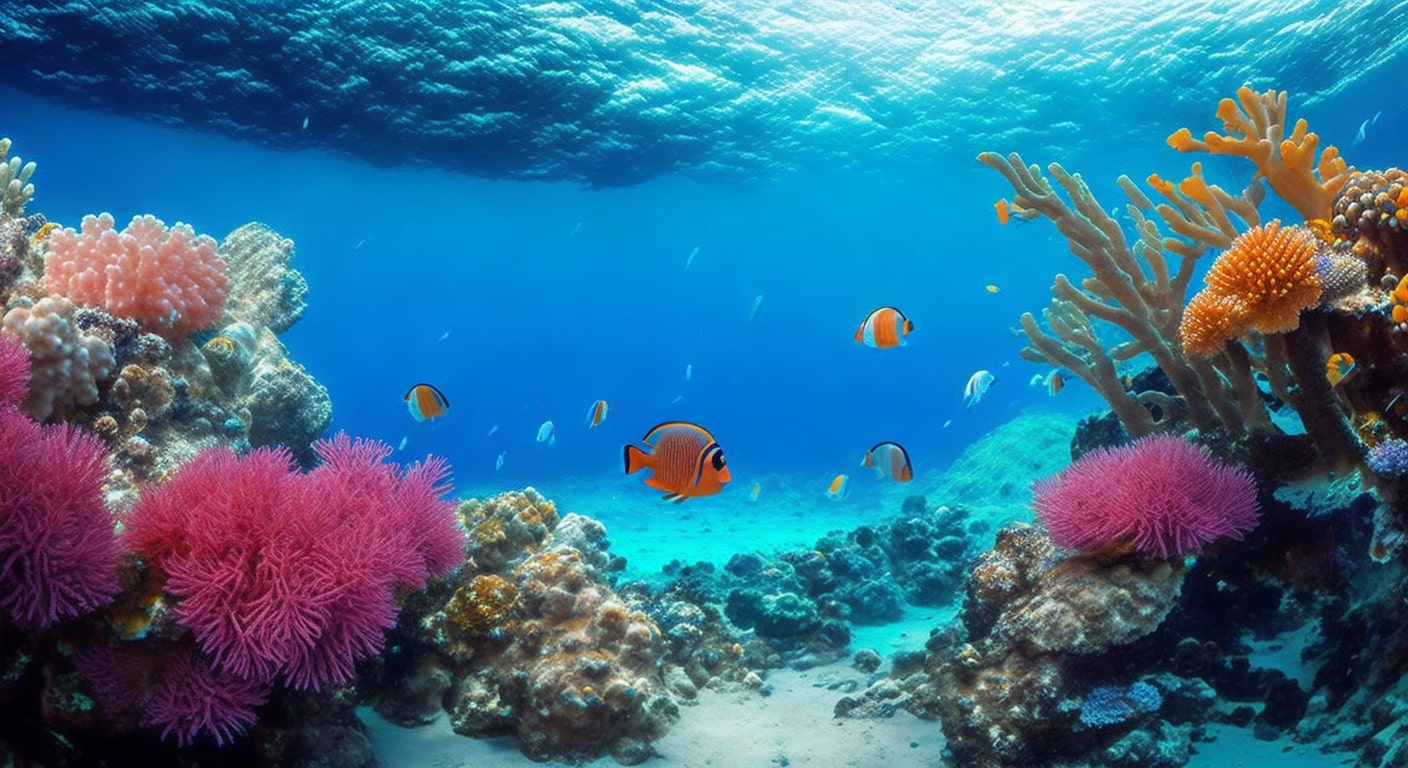
Coral reefs are a cluster of thousands of bottom polyps, invertebrate animals covered in colorful algae. These islets of biodiversity occupy only 0.1% of the world's oceans, but are home to a quarter of all marine species. The coral reef is also the most prolific ecosystem on the planet, but no other biome is more threatened by global warming than corals.
The ocean is getting warmer
Excess of carbon dioxide makes the ocean more acidic, making it increasingly difficult for coral polyps to build up a calcareous skeleton. These fragile creatures get up to 90% of their nutrients from the algae that cover them, which are highly sensitive to changes in water temperature.
As the ocean warms, coral bleaching occurs as seaweed leaves the reefs, exposing white coral skeletons. Without algae, coral polyps, unable to feed themselves, gradually die. Half of the reef-forming corals have already disappeared from the face of the Earth.
Some corrals are adapting
Their ability to adapt to climate change depends on how quickly they create new symbiotic relationships with hardier algae. Some coral populations in the Indian and Pacific Oceans (Pocillopora sp.) are already doing this. In the early 2000s, scientists discovered that corals severely affected by fading in the late 1990s are now covered by algae that normally grow in warmer regions and are therefore more resistant to high temperatures.
Another coral polyp (Acropora hyacinthus) off the Samoan archipelago show a unique genetic predisposition to adapt. It allows it to acclimatize to warmer water and avoid fading in just a couple of years.
However, experts estimate that even if humanity manages to keep global warming at 1.5 °C, it will lose 70 to 90% of the coral reefs that provide shelter and food for more than a million animals and plants, and protect thousands of people from ocean storms. If the planet warms by 2 °C, which is the most likely scenario so far, 99% of corals will die.